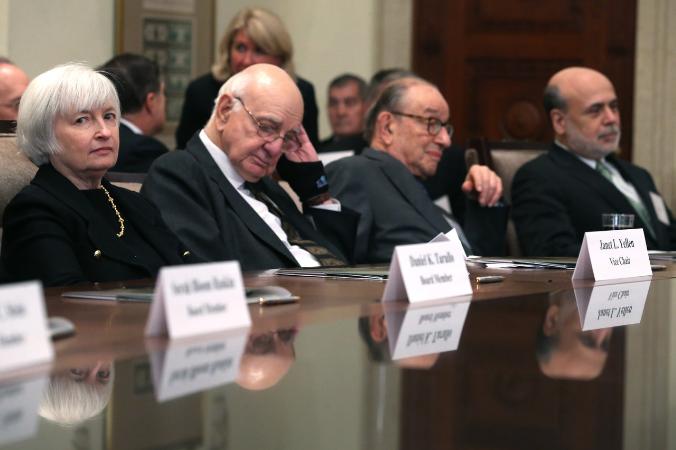Kurtzleben, D. (2014) “What we Didn’t Learn from the Economic Crisis“, Vox Media, 12 September.
In the years since the financial crisis, countries have struggled to remove the causes of the most recent financial crisis. Thus far, they have failed. That’s the view of Martin Wolf, associate editor and chief economics commentator at the Financial Times. In his new book, The Shifts and the Shocks, Wolf examines what we’ve learned from the crisis, and just as importantly, what we haven’t learned.
DK: You write in your book that we’re still not on a sustainable course. What are the main reasons we’re on track for more disaster?
MW: The answer very roughly is this: we have been suffering for really quite a long time from a chronic tendency towards deficient demand in the world economy. That goes back to the ’90s.
Second, we dealt with that in the run-up to the crisis by creating a huge credit boom in the US and a number of other economies. That credit boom, which is just an enormous expansion of debt, was itself unsustainable.
Furthermore, three, in the process of creating the credit boom we also inevitably more or less created this huge overextension of and deterioration of credit quality in the financial system.
Fourth, when the crisis hit, this credit boom stopped, clearly, so there was a panic as well, so our economies went into free-fall.
Fifth and final, so far as we’ve been able to recover out of it, we’ve had to try to promote a return of the credit expansion system. And because the underlying fragility in demand remains, the demand expansion has been very weak. The problem is our post-crisis recovery is both weak and in important respects fragile.
And an important role was played in making this possible, perhaps the sixth point, with government borrowing. But of course we’re reducing that, which is again forcing us to try to expand private credit.
Now my view is that continuing that game indefinitely is almost certain at some point to create another crisis.
DK: You point to things in the book that nations have flat-out done wrong post-crisis: austerity, insufficient financial regulation. Why have we failed to learn?
MW: The first question is: how well did we do in bringing our economies back to reasonable levels of activity after the crisis? This is, if you like, the short-to-medium-term management of the crisis.
And then the second set of questions is do we have a credible plan for creating an economic system that will be more stable in the future?
In terms of the post-crisis response, I think we did a pretty good job in the immediate crisis. I don’t think there was any realistic alternative to the policies pursued at the time. But there were two mistakes made: The first is an insufficient effort was made to reduce and restructure debt. This is true in much of the overleveraged economies, not just true of the US.
Relevant posts:
- Sayek, S. & Taskin, F. (2014) “Financial crises: lessons from history for today“, Economic Policy, Vol. 29, Issue 79, pp. 447–493.
- Walker, M. (2014) “Europe Is Closely Studying Lessons from Japan – They Fear Euro Zone Is Falling Into Similar Lethargy”, The Wall Street Journal, 29 June.
- Xafa, M. (2014) “Lessons from the 2012 Greek debt restructuring“, VoxEU Organisation, 25 June.




